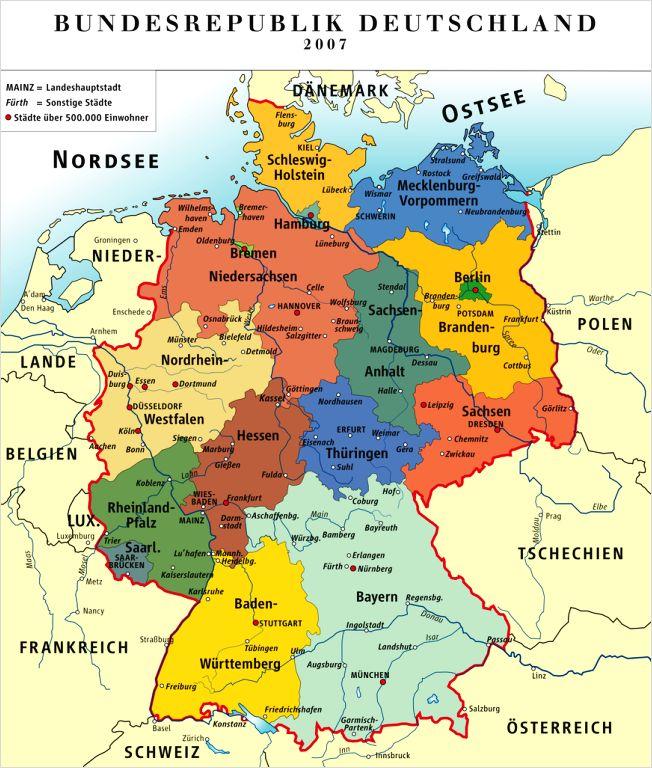Berlin-As Germany grapples with shifting security challenges and a contentious debate over national defense, conservative leaders are mobilizing to reinstate mandatory military service. The move, seen as a last-ditch effort to bolster the Bundeswehr amid a complex geopolitical landscape, marks a pivotal moment in the country’s defense policy discussions. With public opinion divided and political coalitions fragile, the conservatives’ push underscores mounting concerns over military readiness and the future of civic duty in Germany.
Germany’s Conservatives Push for Revival of Mandatory Military Service Amid Security Concerns
Amid growing geopolitical tensions and concerns over defense readiness, Germany’s conservative factions are rallying for a comeback of compulsory military service. Advocates argue that reintroducing conscription would not only bolster the Bundeswehr’s manpower but also foster a renewed sense of civic duty among the youth. This move comes as the government grapples with balancing modernization of its armed forces with the increasing demand for rapid mobilization capabilities.
Key arguments brought forward by proponents include:
- Enhancing national security in the face of evolving threats from neighboring regions.
- Strengthening social cohesion by integrating diverse segments of society through shared service.
- Addressing recruitment shortfalls currently impacting the military’s operational efficiency.
Despite passionate appeals, critics of mandatory service caution against potential setbacks, such as budget strains and the challenge of aligning conscription with a technologically advanced military strategy. Data from recent defense reports highlight the complexity of balancing quantity with quality in troop deployment:
| Aspect | Current Status | Projected Impact if Conscription Returns |
|---|---|---|
| Annual Enlistment | ~25,000 volunteers | Up to 80,000 conscripts |
| Training Duration | 6 months minimum | 3-4 months initial training |
| Budget Allocation | €45 billion | Potential increase of €5 billion |
As debate intensifies, the future of Germany’s military strategy remains uncertain, with conservatives positioning mandatory service as a cornerstone to address both internal and external security challenges.
Key Challenges and Public Resistance Facing the Mandatory Conscription Proposal
The push to reinstate mandatory conscription in Germany faces a spectrum of formidable obstacles, not least of which is the deep-rooted skepticism among the younger generations. Many citizens, particularly millennials and Gen Z, view compulsory military service as an outdated concept incongruent with modern democratic values and individual freedoms. This societal resistance is compounded by widespread concerns about the potential disruption to personal career paths and educational aspirations, stirring debate over the true cost of enforced national service.
Political opponents have also raised critical points, positioning themselves against what they describe as an unnecessary militarization of society. Critics argue that Germany’s security challenges can be addressed more effectively through targeted investment in technology, cyber defense, and voluntary professional forces. Furthermore, logistical hurdles loom large, including recruitment infrastructure, training capacity, and the financial burden on the federal budget. The table below highlights some of the core challenges alongside the key groups driving public opposition:
| Challenge | Nature of Resistance | Key Opposition Groups |
|---|---|---|
| Individual Freedom Concerns | High public disapproval for mandatory service | Youth organizations, civil liberties advocates |
| Economic Impact | Potential loss of skilled workforce during conscription | Business associations, economists |
| Military Modernization | Preference for a smaller, tech-focused professional army | Defense analysts, opposition parties |
| Implementation Logistics | Challenges in scaling up recruitment and training | Defense ministry officials, military trainers |
Strategic Recommendations for Balancing National Defense Needs and Citizen Engagement
To successfully navigate the contentious debate surrounding mandatory military service, policymakers must emphasize transparency and inclusivity in their approach. Engaging citizens through open forums, educational campaigns, and community discussions fosters a sense of shared responsibility while addressing public concerns about personal freedoms and civic duties. By actively promoting the benefits of military readiness alongside societal participation, governments can build consensus without alienating key demographics. Embracing targeted programs that highlight skills development, leadership training, and national pride can transform the narrative from obligation to empowerment.
In parallel, a flexible framework combining both compulsory elements and voluntary service options provides a strategic compromise that respects individual choice and national security imperatives. Consider the following pillars essential for this balanced strategy:
- Adaptive service durations based on personal circumstances and skills
- Alternative civic contributions for those unable or unwilling to serve militarily
- Robust support systems including counseling and career transition assistance
- Continuous public dialogue to address evolving societal expectations
| Approach | Benefit | Potential Challenge |
|---|---|---|
| Mandatory Service with Alternatives | Inclusivity, Respect for Choice | Maintaining fairness in obligations |
| Community Engagement Programs | Public Buy-in, Awareness | Resource Intensive |
| Continuous Feedback Mechanisms | Policy Adaptability | Complex Implementation |
In Conclusion
As Germany’s conservatives rally to revive mandatory military service, the debate underscores deeper questions about national security, social responsibility, and the future of the Bundeswehr. Whether this last-ditch effort will sway policymakers amid shifting political priorities remains to be seen. What is clear, however, is that the conversation around conscription is far from over, reflecting ongoing tensions about how best to prepare Germany for the challenges ahead.




